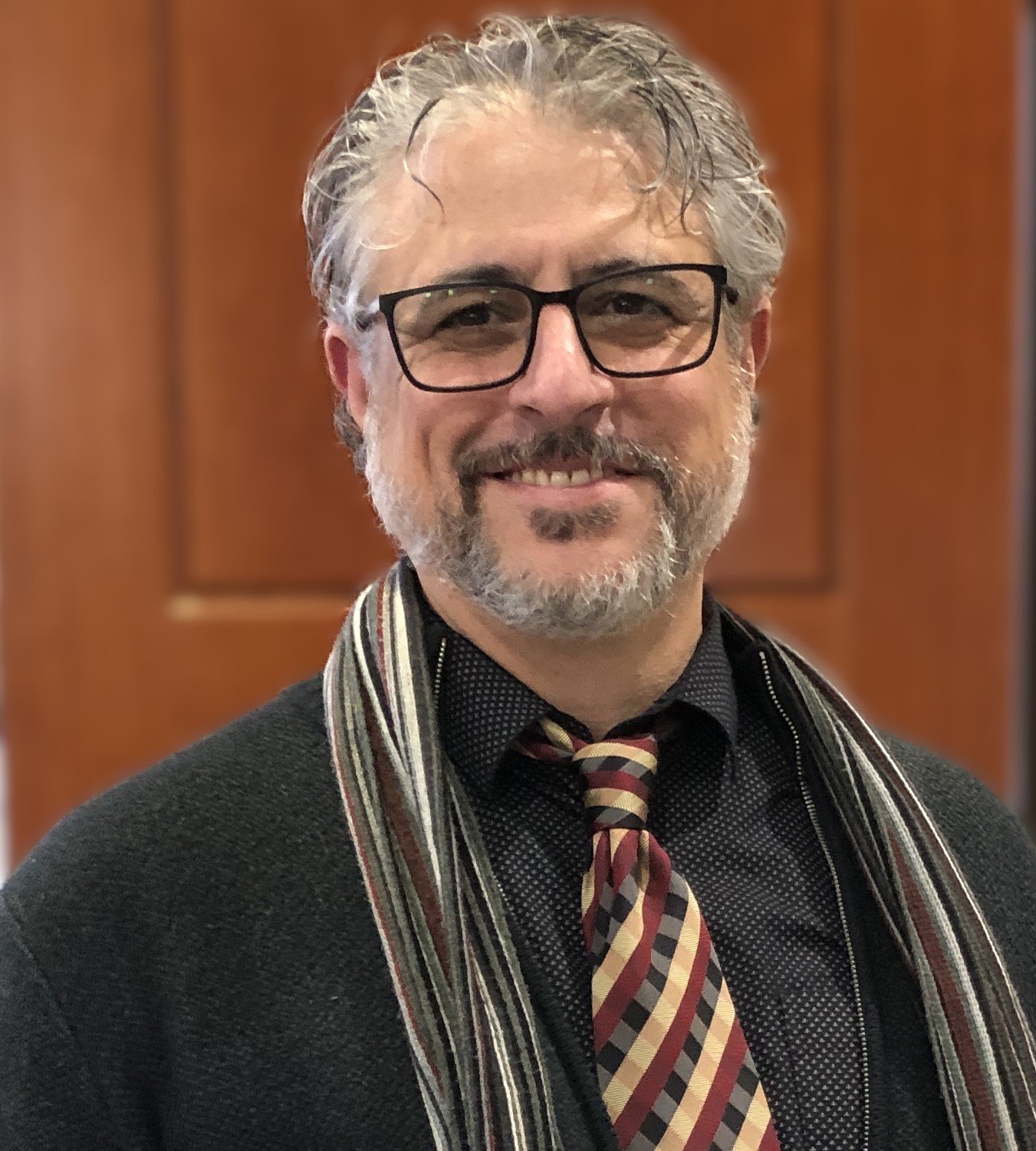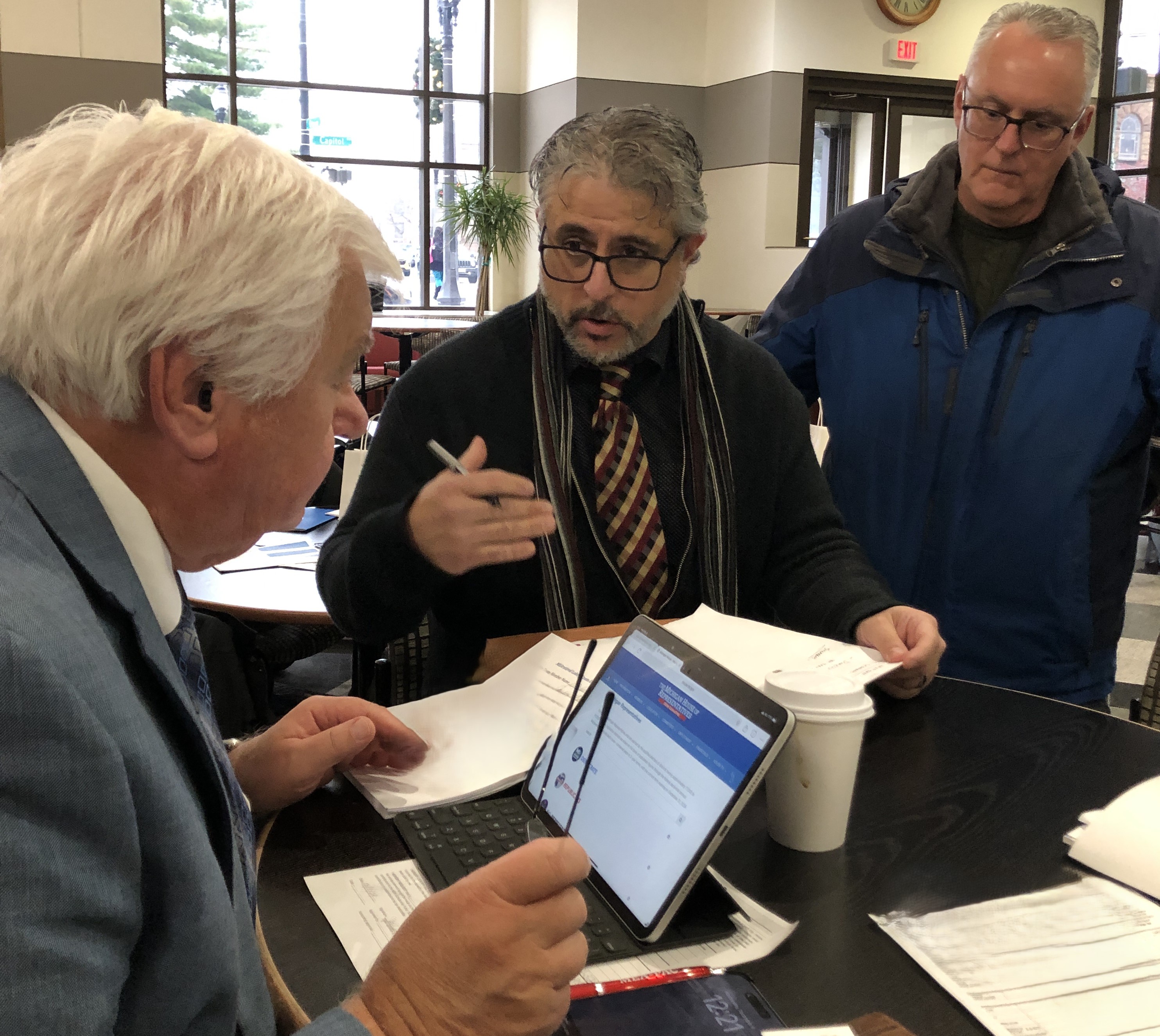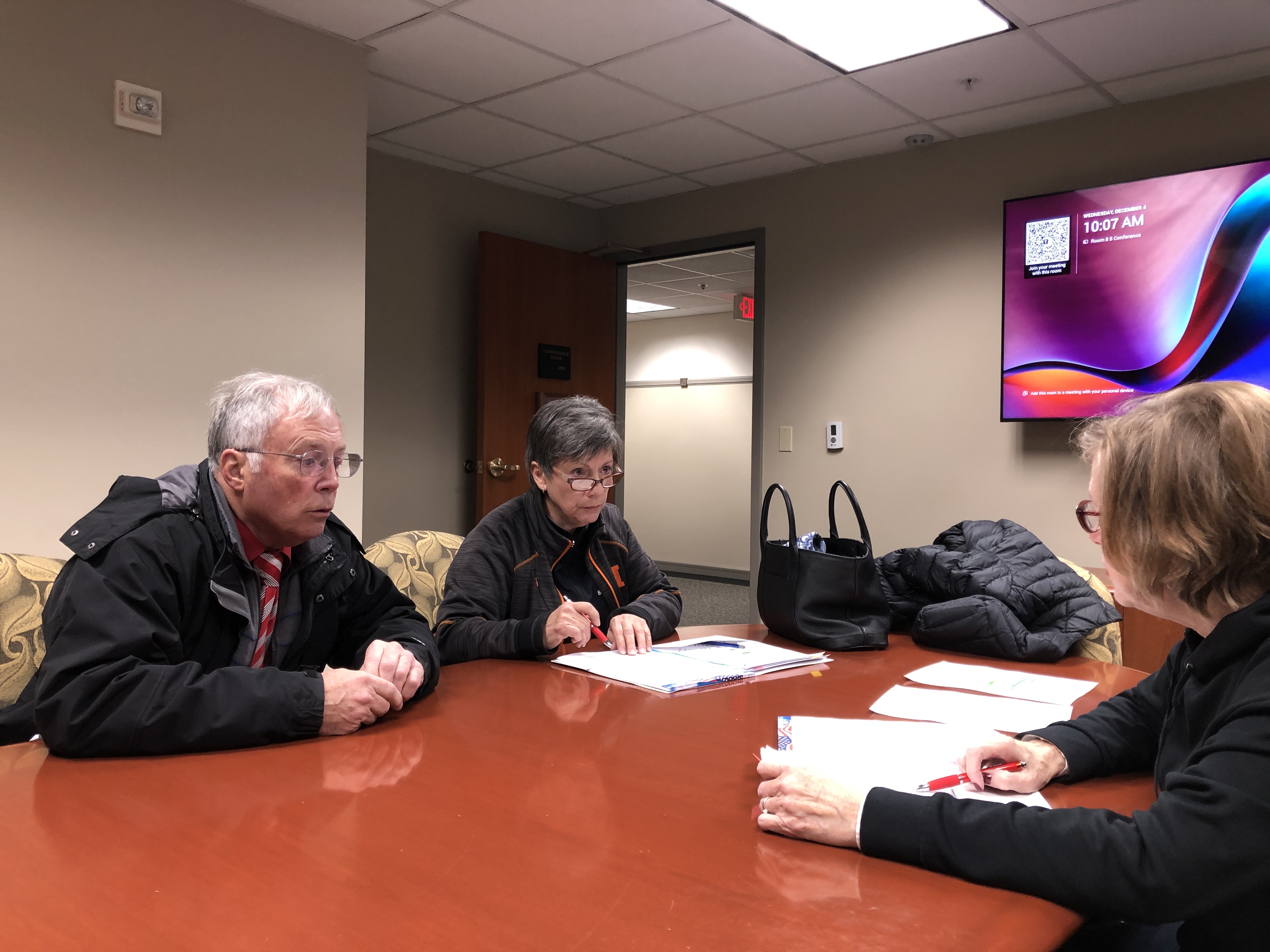Join MEA members making plea to lawmakers: restore affordable health care for educators
By Brenda Ortega
MEA Voice Editor

UPDATE (Dec. 13, 2024) — The state House passed House Bill 6058 on Friday, and it will now advance to the state Senate for their concurrence (the Senate approved identical legislation on Friday as well, but needs to concur on HB 6058 to send the bill to Gov. Whitmer for approval).
Please follow this link to contact your state senator and urge them to vote YES on HB 6058 this week because it will lower costs for teachers and school support staff and keep great educators working in our kids’ schools.
MEA member John Duffy speaks carefully about the health care crisis threatening to roil public education in Michigan and the critical legislation now under consideration in the state Legislature to address it. He wants to convey the urgent nature of the threat and what’s at stake.
“I’m a 35-year teacher,” he told an aide in the office of state Rep. Karen Whitsett (D-Detroit) on Wednesday. “In my life of working as an educator, this is one of the most important bills that I’ve ever seen.”
Duffy traveled to the Capitol this week as part of an MEA team lobbying lawmakers on House Bill 6058. The measure would fix a flawed state law, passed more than a dozen years ago, which is causing dramatic spikes in out-of-pocket health care costs for public employees across Michigan.
In Center Line Public Schools where Duffy works, teachers will be forced to pay an additional $8,000 out-of-pocket for health care next year if no remedy is passed. HB 6058 got a hearing on Thursday in the House Labor Committee which approved it for a floor vote expected next week.
“As a veteran teacher, $8,000 is difficult to pay,” Duffy said in the meeting. “But if you’re a newer teacher, you’re not going to be able to continue; you’re going to start looking somewhere else and leaving the profession. You know you can take your four- or six- or eight-year degree and go anywhere and get better compensation.”
HB 6058 would fix a state law, Public Act 152, which limited the amount school districts could pay toward employee health care costs. Known as the health care hard cap, the law was passed in 2011 alongside severe cuts to state per-pupil funding by a Republican-controlled Legislature and Gov. Rick Snyder.
Because the capped amount has never kept up with annual health care inflation, educators have been forced to pay an increasing share of their districts’ total health insurance premiums. This year alone, the health care hard cap was raised by 0.2% while actual health care inflation was 15%, Duffy said.
“The pact that was made with educators for 60 years was this: you’re never going to get paid commensurate with your level of education, but we’re going to take care of you with your health care and your pension. Those were two pillars of the system, and both pillars were knocked out in 2011.”

MEA member Jason MacKay joined Duffy in visits to various lawmakers. A high school counselor who is president of the Center Line Education Association, MacKay warned that we now stand at a dangerous precipice: as pressure built over time, educators’ health care has cratered.
“I have members retiring early because they can’t afford the insurance and it’s going to be more cost-effective for them to retire now,” MacKay said. “I have new members who are going to take significant hits on already low salaries. I’m here to fight for my people.”
For years since the passage of PA 152, school employees across the state have had little choice but to accept lesser health care benefits at higher costs: paying more for plans with higher and higher deductibles, out-of-pocket medication costs, and reductions in covered vision and dental care.
Anyone who cares about the future of Michigan should be concerned, MacKay said. The burden is reaching a critical mass and may represent a tipping point for a profession facing shortages as it is. Pay raises negotiated in recent years are being eaten up by rising health costs—and then some.
“Educators are the people raising our next generation, yet we don’t invest in them,” he said. “You ask anyone to reflect back on their experience in school, and it’s not the lessons or the facts they learned that they remember—it’s the people, the educators, who made a difference in their lives.
“We need to attract the best candidates to the field, and we need to fill the glaring holes in staffing throughout the state. We can’t do that by cutting and cutting at the expense of our school employees—the future is at stake.”
That holds true as well for education support professionals, such as custodians, secretaries, food service employees, bus drivers and paraeducators, said MEA UniServ Director Kurt Murray, who participated in the lobby day.
“I don’t know how a single mother raising kids on a parapro’s pay is going to make ends meet with these added costs,” Murray said. “They’re already working two or three jobs; what will it take, four or five jobs? It’s not workable.”

Some teaching positions in high-shortage areas such as special education, math and science already are being filled with uncertified staff in many places. “Our profession is in trouble and needs this help,” Murray said.
School districts want the flexibility to prevent catastrophic cost increases for employees, but the law ties their hands, said Rick Meeth, president of the local union in Bay City and a member of the MEA Board of Directors.
Meeth gave virtual testimony before the House Labor Committee on Thursday, sharing that this year in Bay City teachers will go from paying $843 out of pocket for health care to nearly $3,400.
“House Bill 6058 will offer an immediate increase in the hard cap for 2025 and provide some relief to teachers who’ve seen too much taken out of their paychecks and diminishing benefits for their contributions,” Meeth told the committee.
Questioned by Rep. Tom Kunse (R-Clare) about how districts would pay for benefits, Meeth said the money exists as a result of consecutive state education funding increases since 2018, but the flexibility to adapt to changing conditions was taken away in 2011.
The new bill would set a floor for employer contributions to health care costs and provide school districts and educators the opportunity to bargain better health care benefits from there. “Those are decisions best made at the local level,” Meeth said.
Rep. Matt Koleszar (D-Plymouth), a former teacher and local union president who sits on the Labor Committee, agreed that many districts are sitting on large fund balances which exceed state- recommended levels for rainy day funds.
Meanwhile, the social contract with educators has frayed to the point of breaking, “and that is why we have the shortages that we have now,” Koleszar said.
Bill sponsor Mai Xiong (D-Warren) agreed in testimony before the committee. “We have to be strategic and try to stretch our dollars as much as we can, but not off the backs of our public workers or teachers or police officers,” she said.
The measure passed 6-2 out of committee, along party lines.

MEA-Retired members played a large part in this week’s lobbying push to ensure Democrats support passage of HB 6058 before Republicans take control of the state House on Jan. 1. The GOP won a narrow majority in the chamber in the November election.
Michelle Gushen, president of the Genesee Lifelong Education Association – Retired, left her Flint classroom in 2017 but will never stop caring about the hard-working educators who constitute the heart of their communities—nor the children and families who rely on their commitment and expertise.
“I have four grandchildren in public education, and that means the world to me,” Gushen said.
She was joined by Isabell Nazar, a retired science teacher from the tiny town of Homer who serves as a board member of MEA-Retired, who let representatives know that she is also an elected member of the Homer Community Schools Board of Education.
Rising out-of-pocket health care costs pose an especially significant threat to smaller districts that tend to offer lower salaries than larger counterparts, Nazar pointed out. “This bill can really level the playing field for us in smaller rural districts,” she said.
Educators everywhere have faced unprecedented challenges—especially in recent years, Gushen added. Yet many are paying more to work while skipping routine doctor visits and foregoing health care because of the financial squeeze.

“If we don’t show our educators support, if we don’t care enough to keep them healthy and thriving, they’re going to choose other districts—and they’re going to leave for other careers. Our public school system will suffer, but it’s our children and our young people who will pay the price.”
Gushen and Nazar, along with Genesee County retired educator Rick Cross, visited the offices of several representatives, including Rep. Joey Andrews (D-Saint Joseph) who expressed full-throated support for HB 6058 and urged all MEA members to make some noise.
“If people want this done, they need to make a big push,” Andrews warned. “There’s a million issues going on over the next two weeks, and it’s going to take a lot of emails and phone calls and contacts to raise awareness and understanding.”



